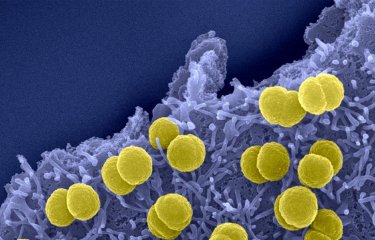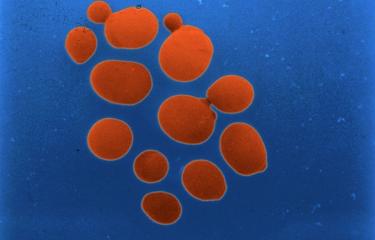Known to kill bacteria, can antibiotics also interfere with our immune system? Researchers at the Pasteur Institute have discovered that a new molecule, used to treat tuberculosis that is multi-resistant to antibiotics, activates the defence functions of macrophages, important players in innate immunity. These cells then became able to fight against bacterial infections, which were normally resistant to this antibiotic.
The discovery of antibiotics is one of modern medicine's major breakthroughs, providing an effective means of tackling bacterial infections. These agents target specific bacterial cellular processes, preventing their multiplication or even survival. Little is still known regarding their effect on humans. Recent observations suggest that antibiotics can impact the immune system either indirectly by affecting "helpful" bacteria normally present in the body or by directly affecting immune cells. Scientists from the Institut Pasteur's Integrated Mycobacterial Pathogenomics Unit have studied how bedaquiline, an antibiotic recently developed for treating tuberculosis, affects the immune system. They discovered that bedaquiline activates macrophages' bactericidal functions, which are capable of controlling bacteria normally resistant to this antibiotic.
Macrophages absorb foreign particles such as bacteria and break them down using enzymes stored within small internal compartments, or "lysosomes". A combination of imaging and gene expression analysis revealed that exposure to bedaquiline not only increases the number of lysosomes in macrophages, but also their ability to break down foreign particles.
Bedaquiline treatment could therefore improve macrophages' efficacy for tackling bacterial infections, even though the antibiotic itself has no direct effect on bacteria. Further experiments, in which macrophages were treated with bedaquiline, then exposed to different types of bacteria known for their resistance to this antibiotic, confirmed this theory.
This research sheds new light on the way in which antibiotics can interact with immune system cells. It also demonstrates that it is possible to strengthen our defense systems to fight antibiotic-resistant bacteria. As such, it may provide the basis for developing more effective treatments for bacterial infections.
Source: Elife, May 4 2020. doi: 10.7554/eLife.55692.
This study is part of the priority scientific area Antimicrobial Resistance of the Institut Pasteur's strategic plan for 2019-2023.




